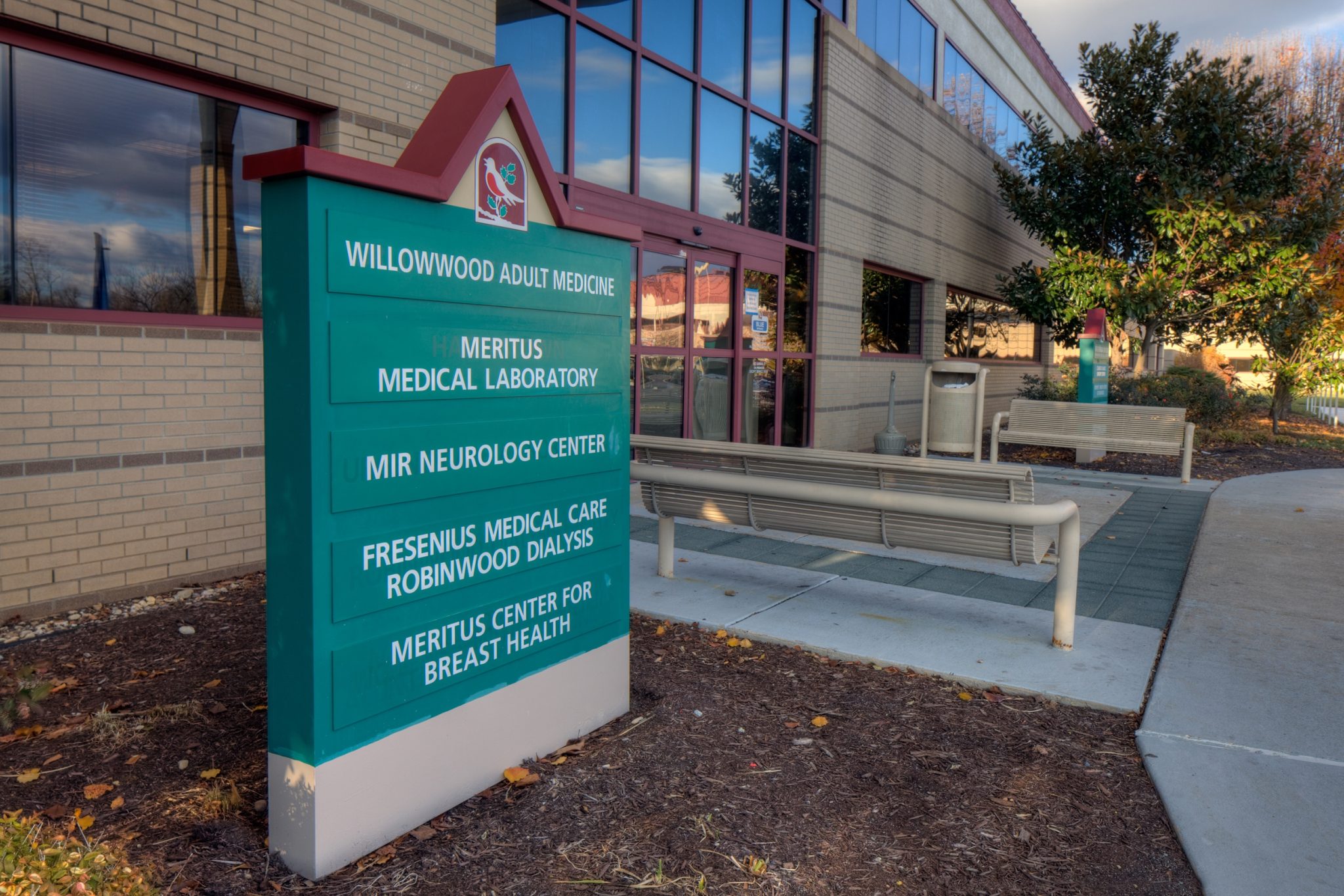We're Hiring! Join Our Team as a Nurse Practitioner - Apply Now. to Make a Difference in Patient Care!
Dementia

Dementia Diagnosis and Treatment Services
Dementia is an umbrella term for a range of cognitive impairments that interfere with a person’s ability to think, remember, make decisions, and perform daily activities. It is not a specific disease but rather a collection of symptoms that can be caused by various diseases or conditions affecting the brain. Alzheimer’s disease is the most common form of dementia, but there are other types, including vascular dementia, Lewy body dementia, and frontotemporal dementia.
At our clinic, we specialize in diagnosing and providing comprehensive care for individuals with dementia. Our team of healthcare professionals, including neurologists, geriatric specialists, psychologists, and caregivers, offers personalized treatment plans designed to slow progression, manage symptoms, and enhance the quality of life for individuals affected by dementia.
What is Dementia?
Dementia is a decline in cognitive function severe enough to interfere with daily life and activities. It is characterized by the loss of memory, reasoning, judgment, and language abilities, as well as the impairment of other cognitive skills. Dementia affects individuals differently, depending on the type, the underlying cause, and the severity of the condition. While cognitive symptoms are the hallmark of dementia, behavioral changes such as mood swings, aggression, or withdrawal are also common.
Common forms of dementia include:
- Alzheimer’s Disease: The most prevalent form of dementia, Alzheimer’s disease is marked by the gradual decline of memory, thinking, and reasoning abilities. It often begins with mild forgetfulness and progresses to more severe cognitive impairment.
- Vascular Dementia: This type of dementia occurs due to reduced blood flow to the brain, often caused by strokes or other vascular issues. Symptoms may include confusion, difficulty with attention, and problems with memory or planning.
- Lewy Body Dementia: Characterized by abnormal protein deposits in the brain, this form of dementia includes symptoms like visual hallucinations, motor symptoms similar to Parkinson’s disease, and fluctuating cognitive abilities.
- Frontotemporal Dementia: This rare type of dementia affects the frontal and temporal lobes of the brain, resulting in personality changes, inappropriate behavior, and language difficulties.
- Mixed Dementia: Some individuals may experience more than one type of dementia simultaneously, such as Alzheimer’s disease and vascular dementia.
Symptoms of Dementia
The symptoms of dementia can vary widely based on the type and stage of the condition. However, common signs include:
- Memory Loss: Difficulty remembering recent events, conversations, or appointments is often one of the first signs of dementia. In more advanced stages, individuals may forget familiar faces, places, and even their own identity.
- Cognitive Decline: Challenges with problem-solving, decision-making, and thinking clearly. Individuals may find it difficult to follow a story, plan tasks, or keep track of time.
- Language Difficulties: Struggles with finding the right words, following conversations, or understanding speech can develop as dementia progresses.
- Disorientation: People with dementia may become confused about time, dates, or locations. This can lead to wandering or difficulty recognizing familiar surroundings.
- Mood and Behavior Changes: Dementia can cause mood swings, anxiety, depression, irritability, or even aggression. These changes can be especially challenging for caregivers and loved ones.
- Difficulty with Daily Tasks: As the disease progresses, individuals may struggle with personal hygiene, cooking, cleaning, and managing finances. Tasks that were once routine may become overwhelming.
- Impaired Judgment: People with dementia may exhibit poor decision-making, such as giving away money, making unsafe choices, or falling victim to scams.
Causes and Risk Factors for Dementia
Dementia can arise from a variety of causes. While some forms of dementia are irreversible, others may be caused by treatable or reversible conditions. Key risk factors and causes include:
- Age: The risk of developing dementia increases with age, particularly after 65. However, early-onset dementia can occur in individuals under 65 as well.
- Genetics: Family history plays a significant role in the risk of developing dementia, particularly for Alzheimer’s disease.
- Chronic Health Conditions: Diseases such as heart disease, diabetes, high blood pressure, and high cholesterol can increase the risk of vascular dementia.
- Head Injuries: Traumatic brain injuries, such as concussions, increase the likelihood of developing dementia later in life.
- Lifestyle Factors: Smoking, excessive alcohol consumption, lack of physical activity, and poor diet can contribute to dementia risk, especially vascular dementia.
- Other Health Issues: Mental health conditions, particularly depression, as well as infections or diseases affecting the brain, can lead to cognitive impairment.
Diagnosing Dementia
Accurate diagnosis is essential for managing dementia and tailoring a treatment plan. At our clinic, we follow a thorough, multidisciplinary approach to diagnose dementia:
- Medical History and Symptoms Review: Our specialists take a detailed history, asking about the patient’s symptoms, medical history, family history, and lifestyle factors.
- Neurological Examination: A physical examination, including testing reflexes, coordination, and motor skills, is essential to assess neurological function.
- Cognitive and Neuropsychological Testing: Standardized tests such as the Mini-Mental State Examination (MMSE) or Montreal Cognitive Assessment (MoCA) help assess cognitive abilities, including memory, attention, and reasoning.
- Imaging Tests: Brain imaging such as MRI or CT scans can help identify brain changes or damage caused by strokes, tumors, or conditions like Alzheimer’s disease.
- Blood Tests: Blood tests may be conducted to rule out other causes of symptoms, such as infections, vitamin deficiencies, or thyroid disorders, which can mimic dementia.
- Psychiatric Evaluation: In some cases, a psychiatric evaluation may be necessary to identify co-existing mental health conditions such as depression or anxiety.
Treatment for Dementia
While there is no cure for dementia, several treatments can help manage symptoms, slow progression, and improve quality of life. Treatment is personalized to the individual’s type of dementia, stage of the disease, and overall health. Common approaches include:
- Medications:
- Cholinesterase Inhibitors (Donepezil, Rivastigmine, Galantamine): These medications are commonly prescribed for Alzheimer’s disease and work by increasing acetylcholine levels in the brain, which can improve cognitive function.
- NMDA Antagonists (Memantine): This drug may be used to treat moderate to severe Alzheimer’s disease and helps regulate the action of glutamate, a neurotransmitter involved in learning and memory.
- Antidepressants and Antianxiety Medications: These can help manage mood changes, depression, and anxiety associated with dementia.
- Antipsychotics: In some cases, medications may be used to manage severe agitation, aggression, or hallucinations.
- Cognitive and Behavioral Therapies:
- Cognitive Stimulation Therapy (CST): This therapy engages individuals with dementia in activities that stimulate thinking, memory, and social interaction, which can improve cognitive function and overall well-being.
- Reality Orientation Therapy: This therapy helps individuals stay oriented to time, place, and person, reducing confusion and disorientation.
- Reminiscence Therapy: Involves recalling past experiences to enhance memory and improve mood.
- Lifestyle Modifications:
- Exercise: Regular physical activity can improve cognitive function, reduce agitation, and promote overall health.
- Nutrition: A healthy diet rich in fruits, vegetables, and omega-3 fatty acids supports brain health and reduces inflammation.
- Social Engagement: Social activities can prevent isolation, depression, and cognitive decline.
- Sleep Hygiene: Ensuring adequate rest is essential for mental and physical health.
- Support for Families and Caregivers: Dementia can be emotionally and physically challenging for caregivers. Our team offers support, training, and resources to help families manage caregiving responsibilities and navigate the complexities of dementia care.
Why Choose Our Dementia Care Services?
- Expert Care: Our team of specialists, including neurologists, geriatricians, and psychologists, are experts in diagnosing and treating dementia.
- Comprehensive Approach: We offer personalized treatment plans that include medical interventions, therapies, and lifestyle strategies to manage symptoms and improve quality of life.
- Family-Centered Support: We provide education, resources, and guidance for families and caregivers, helping them support their loved ones effectively.
- Compassionate Care: We understand the emotional impact of dementia and are dedicated to providing compassionate care tailored to the individual’s needs.
Contact Us Today
If you or a loved one is experiencing symptoms of dementia, contact us today to schedule a consultation. Our dedicated team is here to help with diagnosis, treatment, and ongoing support to improve the quality of life for individuals living with dementia.

























